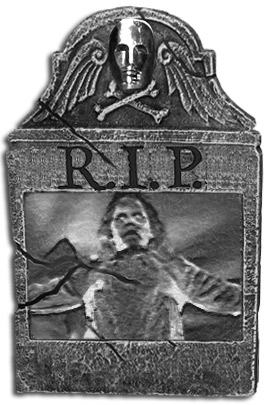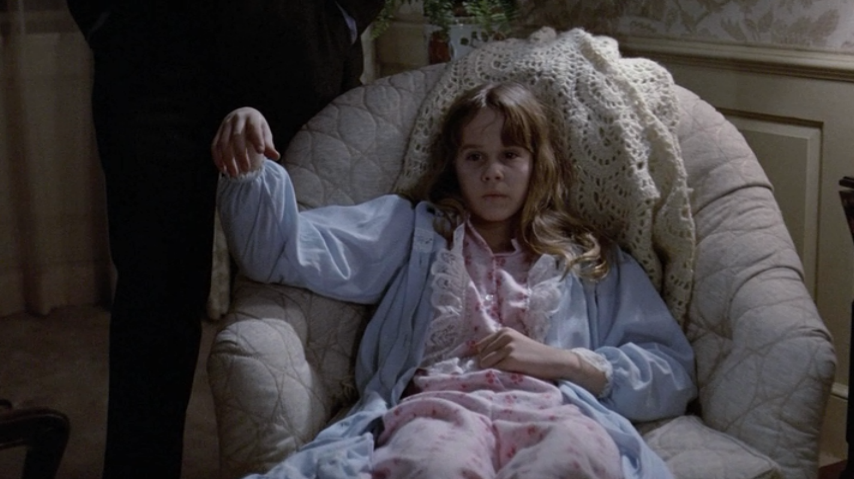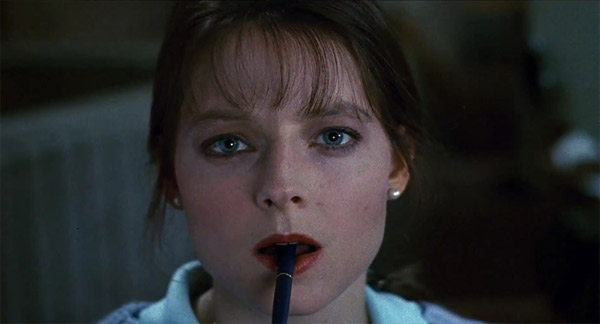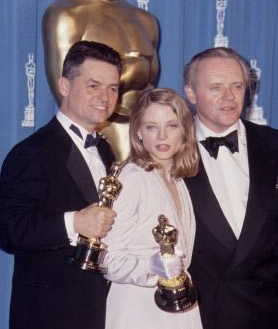Oscar Horrors: In (Mild) Defense of Linda Blair
 Friday, October 28, 2011 at 4:00PM
Friday, October 28, 2011 at 4:00PM  In Oscar Horrors, Team Film Experience explores Oscar nominated contributions to the horror genre. Here is new contributor Mayukh Sen.
In Oscar Horrors, Team Film Experience explores Oscar nominated contributions to the horror genre. Here is new contributor Mayukh Sen.
HERE LIES...Linda Blair’s reasonably complex turn in The Exorcist, slain by the prodigious work of fellow pubescent Tatum O’Neal (Paper Moon).
Brian de Palma apparently hated The Exorcist, and it’s not difficult to see why. I generally fall on the unimpressed side with the film, because none of the psychological trauma undergone by the characters finds aesthetic articulation. Everything is so clearly, obviously constructed on a Hollywood set that it borders on the parodistic. What is superlative about a director like de Palma is that he understands the trappings of genre conventions and mocks the notion of film as a classically escapist, populist medium, managing to extract a modicum of truth out of such a framework. Friedkin doesn’t understand this. Interpreting what should be perfunctory entertainment as a parable of human suffering – that’s dreary city.
I won’t waste a second pretending Linda Blair’s performance is any great shakes. Her nomination was largely the product of inertia – The Exorcist (1973) was just a cultural phenomenon that the Academy couldn’t ignore, Dan. Yet reading Glenn’s wonderful piece on Sissy Spacek’s performance in Carrie made me realize the extent to which Blair’s performance has become underrated. Spacek’s performance is a masterpiece because of her fearless, but still graceful, physical expressivity. She is a performer who understands body language. The way she continually destructs, contorts, and fractures her body often acts as a reflection of the character’s emotional distress.

Somewhere along the line, it became fashionable to oversimplify Blair’s performance as a lot of “sitting there” caked with makeup. Those in defense of her performance often point to the luminosity of her earlier pre-possession scenes, rightly claiming that she is replete with youthful charm. I agree. She’s wonderful there, and she sets up a foundation for the supposed tragedy that occurs later in the film.
Beyond Mercedes McCambridge’s voice, plastic turning heads, body double controversies and other stunts that may not have much to do with acting talent, though, Blair’s work is solid. She demonstrates remarkable control over her facial expressions and body language, subtly communicating the “devil’s” continual torment, lack of patience, and frustration.
How does one externalize the psychological state of demonic possession? I’m not quite sure, but we can say that Linda Blair succeeded, to a degree. Her work is highly gestural but still controlled, and this degree of expressivity works wonders. I’ve noticed a tendency of certain critics to dismiss horror film performances as merely “acting scared” and “being terrified”. Though Blair’s performance is ultimately a cheap narrative trope, it shouldn’t be evaluated so lazily. I’m not a fan of praising performances because of the sheer amount of work put into them (see Meryl Streep’s string of performances in the 80s), but, in this case, the physical work is brutally effective. There is increasingly little appreciation for what actors communicate through physical gestures, and this might be part of why Linda Blair’s nomination is something of an afterthought these days.







